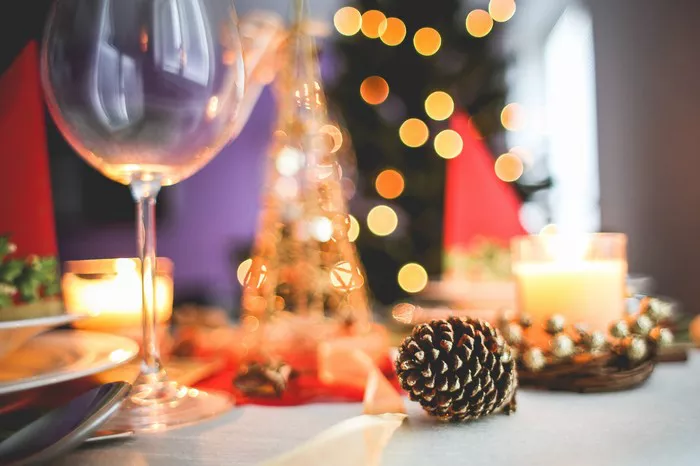Champagne is more than just a beverage; it is a symbol of celebration and luxury. Many people enjoy keeping a bottle of champagne on hand for special occasions. However, a common question arises: How long does unopened champagne last? Understanding the shelf life of unopened champagne is essential for maintaining its quality and taste. This article delves into various factors that influence the longevity of unopened champagne and provides guidelines for proper storage.
Understanding Champagne
Champagne is a sparkling wine produced in the Champagne region of France. Its unique characteristics come from a combination of grape varieties, fermentation processes, and aging methods. The primary grapes used in champagne production are Chardonnay, Pinot Noir, and Pinot Meunier. These grapes contribute to the wine’s flavor profile and acidity.
There are different types of champagne, each with its own aging potential. Non-vintage champagne is blended from multiple years and is meant to be consumed relatively soon after bottling. In contrast, vintage champagne is made from grapes harvested in a single year and can improve with age. Understanding these distinctions is crucial for assessing how long unopened champagne can last.
Factors Affecting Shelf Life
The shelf life of unopened champagne can vary based on several factors. The primary factors include the type of champagne, the storage conditions, and the quality of the wine itself. Knowing these factors helps ensure that your champagne remains in optimal condition.
Type of Champagne
Different types of champagne have varying shelf lives. Non-vintage champagne is designed for immediate consumption. It is typically best enjoyed within three to five years of purchase. Vintage champagne, however, has a longer lifespan. It can last anywhere from five to ten years or even longer if stored correctly.
Quality of the Wine
The quality of the champagne plays a significant role in its longevity. High-quality champagnes often have better aging potential. Renowned producers invest time and resources into creating exceptional wines. As a result, their vintage champagnes can age gracefully for decades.
Storage Conditions
Proper storage is essential for maintaining the quality of unopened champagne. Factors such as temperature, light, and humidity can impact the wine’s longevity. Understanding how to store champagne correctly can help preserve its flavor and effervescence.
Temperature Control
The ideal storage temperature for champagne is between 45°F and 65°F (7°C to 18°C). Extreme temperatures can cause the wine to age prematurely. Consistent temperature is also vital. Fluctuations can lead to expansion and contraction of the cork, allowing air to enter the bottle.
Light Exposure
Champagne is sensitive to light, especially UV rays. Prolonged exposure to light can degrade the wine’s quality. Therefore, it is crucial to store champagne in a dark place or in a box. Avoid keeping bottles near windows or under direct light.
Humidity Levels
Humidity is another important factor in champagne storage. The ideal humidity level is around 70%. Higher humidity can lead to mold growth on the cork, while low humidity can dry out the cork. A dried cork can allow air into the bottle, ruining the champagne.
How to Store Unopened Champagne
To ensure the best quality, proper storage of unopened champagne is essential. Here are some tips for storing your bottles effectively.
Horizontal Position
Store champagne bottles horizontally. This position keeps the cork moist, preventing it from drying out. A dry cork can compromise the seal, allowing air to enter the bottle.
Avoiding Vibration
Keep champagne away from sources of vibration. Constant movement can disturb the sediment in the wine and affect its aging process. A quiet, stable environment is ideal for champagne storage.
Shelf Life Summary
In summary, unopened champagne has a variable shelf life depending on its type and storage conditions. Here is a concise overview:
Non-Vintage Champagne: Best enjoyed within 3 to 5 years.
Vintage Champagne: Can last 5 to 10 years or longer with proper care.
Understanding these timelines helps ensure you enjoy your champagne at its best.
See Also: Is Chardonnay a Dessert Wine?
Signs of Spoilage
Even unopened champagne can spoil if not stored properly. Here are some signs to watch for.
Cork Issues
If the cork appears to be pushed out or is damaged, the wine may be compromised. A damaged cork can allow air to seep in, affecting the champagne’s quality.
Visual Changes
Look for any changes in the bottle, such as leaks or unusual bubbles. If the bottle has been compromised, it may indicate spoilage.
Smell and Taste
If you open a bottle and notice off-odors or an unusual taste, it is best to discard it. Fresh champagne should have a crisp, clean aroma and flavor.
Conclusion
In conclusion, understanding how long unopened champagne lasts is crucial for any wine enthusiast. Proper storage conditions can significantly extend the shelf life of your bottles. Always consider the type of champagne and its quality.
Non-vintage champagne typically lasts three to five years, while vintage champagne can last much longer. By following best practices for storage, you can ensure your champagne maintains its quality for special occasions. Whether you’re celebrating a milestone or simply enjoying a quiet evening, knowing your champagne is in optimal condition enhances the experience.
Enjoying champagne is a delightful experience, but it’s essential to be mindful of its longevity. With proper care and storage, you can savor your unopened bottles for years to come. So next time you purchase a bottle of champagne, remember these tips to ensure you enjoy it at its best.
You Might Be Interested In:


